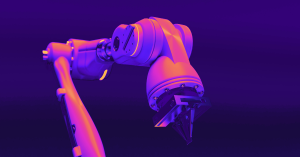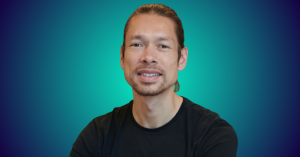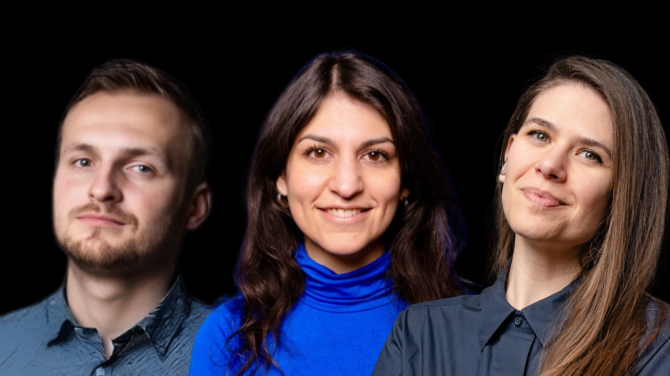Blockchain is entering the mainstream, but education around its usage and the abundance of differences between blockchain networks hasn’t kept up the pace. Users, as well as policy makers are in stark need of guidance in order to help scale blockchain to its true potential for building transparency, verifiability, and ultimately trust across multiple markets. This is one of the goals of Frederik Gregaard, CEO of the Cardano Foundation, the Swiss-based non-profit that oversees and supervises the advancement of the Cardano blockchain.
As part of these efforts, the Cardano Foundation recently partnered with The University of Zurich to explore blockchain education development and advance research initiatives that can enable its adoption.
Since its beginnings in 2016, the Foundation has raised $62.2M through an initial coin offering and on secondary markets. In 2021, they processed 23.8 million transactions and minted 2.5 million native assets.
Cardano works on a proof-of-stake (PoS) consensus mechanism, an approach to blockchain that helps reduce computational power, and thus energy consumption – a key challenge for this emerging technology.
The Recursive talked to Frederik Gregaard about:
- The Cardano Foundation’s missions to further blockchain education, empower Cardano Developers, and increase usability;
- Practical examples of how blockchain can help build reputation, trust, and bridge challenges in vulnerable communities;
- Misconceptions and threats around blockchain and crypto.
The Recursive: What are your current responsibilities and professional goals as CEO of the Cardano Foundation?
Frederik Gregaard: As CEO of the Cardano Foundation, I have a very clear mission, which is to ensure the positive advancement of the Cardano protocol, while also contributing to the positive advancement of blockchain as a world-changing technology. However, for the year ahead I have a number of very specific goals.
I want to educate people on blockchain, especially proof-of-stake and its use cases. As the technology continues to move from the margins to the mainstream, blockchain education has never been more important to ensure adoption. A lack of understanding amongst stakeholders can affect adoption and growth, as well as regulation. This leads to another goal of mine, which is collaboration with regulators.
The blockchain sector will benefit from regulation in many ways, but it cannot come at the cost of innovation.
I want to equip the Cardano Developer community with exciting decentralized solutions. That’s why we continue to provide our community with regular updates on the Cardano Developer Portal where developers can learn, share, and grow the Cardano ecosystem together. As of April, we have over 900 projects building on Cardano, an increase of almost 400 since the beginning of the year.
Growth of the ecosystem is fundamental and this is why I’m aiming to increase interoperability and scalability. Through this goal, we will enhance the usability of the protocol, advancing further towards our long-term goal of onboarding 50 banks or regulated entities.
These goals are underpinned by my final goal, which is to have a positive impact. Across the globe, we continue to see a lack of diversity and inclusion, while environmental concerns arguably remain the largest issue of our time. Working with our partners and those at the cusp of climate change solutions, we want to offer Cardano as a solution to global Environmental, Social, and Governance (ESG) challenges.
To build on that last point, what is Cardano Foundation’s view on the environmental responsibility of blockchain technologies?
There are several projects related to continual development and research on the environmental footprint of Cardano. Our community is fundamental in driving these efforts forward. The Climate Neutral Cardano Group (CNCG) – a group of our stake pools allied in using 100% renewable energy for the operation of their Cardano stake pool servers – actually helped us formulate our Global Impact Challenge to plant 1 million trees. Plantation started last December in Kenya, and more trees have already been added this year, with more still to come. Our partnership with the Veritree platform also ensures the data associated with the trees remains immutable. This makes the trees both verifiable and traceable, so we know they have a real, lasting impact.
Any viable future needs a breathing, healthy planet. It is not a question of choosing either success or the right thing. In fact, at the Cardano Foundation, we believe both are quite possible. We aim to be the architects of the future, and respecting this spaceship we call Earth is a fundamental part of succeeding at this.
Which exciting project that the Cardano Foundation is currently working on would you single out?
It is incredibly hard to choose but for the purpose of this interview I will say Baia’s Wine. It is a great example of the possibilities of blockchain, of how it can create partnerships in different fields, and function in a practical way.
The Georgian family running Baia’s Wine faced a recurring problem of counterfeit products that risked the reputation of their artisanal winery. The Cardano Foundation helped them create a trackable supply chain: the wine’s origin, its time in transit, the organizations involved in the process, the actual full record of the supply chain is permanently and immutable registered on the Cardano blockchain. No one can change the data, but anyone can verify it. To grant every customer this access, each bottle comes with a unique and traceable QR code developed by Scantrust – a well established platform protecting brands through digitalization. So, the Cardano-Scantrust application basically ensures an authenticated supply chain from farm to table.
An exciting aspect of this project has to do with how it can be scaled and translated to other realities. Many sectors experience similar issues of counterfeit. It has become a widespread problem for businesses across industries and countries.
There are clearly other situations where this type of authentication would also provide an advantage such as pharmaceuticals, fashion, building materials. The possibilities are almost endless. Blockchain can play a central role in giving companies and organizations with a traceability issue credibility.
In your view, what are the most exciting applications and benefits that blockchain and crypto technologies and products can bring?
Blockchain can fundamentally improve how the world communicates, interacts, and builds together. Especially when the reliability and resilience of the technology is paired with longevity, resulting in long-term impact for generations to come.
It provides a fantastic means to build reputation and trust, which could see the relationship between countries of the global South and global North enter a new dynamic.
For example, nowadays the majority of people in the world remain unbanked. They do not have access to capital markets, insurances, or plain banking services. In emerging markets, most people still find themselves either unbanked, or crucially underbanked. Digital platforms have a greater facility integrating with people in such situations.
UBX, which is the fintech arm of UnionBank of the Philippines, has actually embarked on a journey to make blockchain a major component of its infrastructure. They see how maximizing the blockchain’s potential will create a reliable digital platform to support Filipinos with their finances.
We collaborated with UBX to increase decentralized finance (DeFi) as they launched a public stake pool on Cardano. This acceptance of Cardano as a financial operating system sets standards for regulated financial institutions. At the same time, it derisks adoption efforts for other financial institutions, enterprises, and individuals.
What are the biggest threats to the blockchain/ crypto space, and how can we collectively mitigate them?
Regulators’ lack of understanding of proof-of-stake systems is an issue that must be addressed. We have already witnessed legislation being passed without a full understanding of the specificities and differences among the various blockchain systems. Of course, the blockchain’s environmental reputation adds to these challenges. To rectify this, we must start blockchain education conversations, clarify doubts and misconceptions, and provide concrete positive examples of what blockchain can do. In sum, we must impart knowledge to policymakers and decision makers in government.








